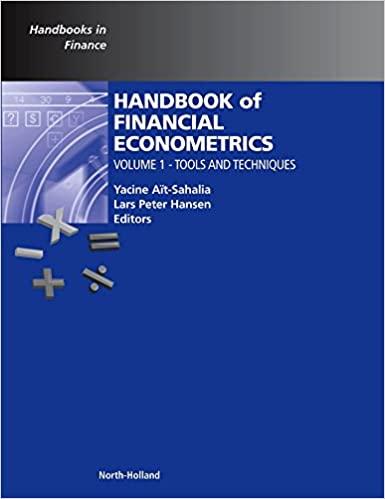
all parts please
Question 2. (20 points) It is January 31, 2019. A local brewery is a large producer of craft beer whose main ingredient is barley. The demand for craft beer is seasonal with the largest demand occurring mid-June through the end of August. Production schedules require the acquisition of 80 metric tons (MT) of barley in late May to meet the summer season demand. The management of the brewery is concerned about the possibility that a rise in the price of barley between now and the end of May could hurt profit margin. Berley must be acquired for S350 per metric ton (MT) or less to ensure profitability. On February 1, 2021, the ICE June 2021 Barley futures contract (20 MT per contract) is selling for $351.80 per MT. The standard deviation of the change in the spot price of barley is 0.80. The standard deviation of the change in the futures price of barley is 0.56. The correlation between the change in futures price and the change in spot price is 0.60. One contract of berley is 20 metric tons on ICE I (a) Indicate whether the risk manager of the brewery should take a long or short futures position to hedge price risk. Why? (b) Calculate the risk-minimization bedge ratio, h, and determine how many contracts the brewery must trade? If the standard deviation of the change in the futures price of barley doubles, what would happen to the number of contracts? Does it increase or decrease? Explain the intuition behind your last result. (C) Determine the hedge effectiveness and comment. Determine and discuss the effects of the badge effectiveness of (i) a 25% decline in the correlation between the changes in futures price and the change in sport priec, p. (i) a doubling of the standard deviation of the change in the spot price of barley, cand (iii) 2 doubling of the standard deviation of the change in the futures price of burley. :? (a) Suppose that the brewery follows your hedging recommendations in (a) and (b). On June 14.2021, the spot price of baricy is S400 per metric ton and the June barley futures price is trading at $410 per metna lon. What is the total gain or loss from the futures position(s)? What is the net (effective price paid by the browery? Any regrets from hodging? Why? Question 2. (20 points) It is January 31, 2019. A local brewery is a large producer of craft beer whose main ingredient is barley. The demand for craft beer is seasonal with the largest demand occurring mid-June through the end of August. Production schedules require the acquisition of 80 metric tons (MT) of barley in late May to meet the summer season demand. The management of the brewery is concerned about the possibility that a rise in the price of barley between now and the end of May could hurt profit margin. Berley must be acquired for S350 per metric ton (MT) or less to ensure profitability. On February 1, 2021, the ICE June 2021 Barley futures contract (20 MT per contract) is selling for $351.80 per MT. The standard deviation of the change in the spot price of barley is 0.80. The standard deviation of the change in the futures price of barley is 0.56. The correlation between the change in futures price and the change in spot price is 0.60. One contract of berley is 20 metric tons on ICE I (a) Indicate whether the risk manager of the brewery should take a long or short futures position to hedge price risk. Why? (b) Calculate the risk-minimization bedge ratio, h, and determine how many contracts the brewery must trade? If the standard deviation of the change in the futures price of barley doubles, what would happen to the number of contracts? Does it increase or decrease? Explain the intuition behind your last result. (C) Determine the hedge effectiveness and comment. Determine and discuss the effects of the badge effectiveness of (i) a 25% decline in the correlation between the changes in futures price and the change in sport priec, p. (i) a doubling of the standard deviation of the change in the spot price of barley, cand (iii) 2 doubling of the standard deviation of the change in the futures price of burley. :? (a) Suppose that the brewery follows your hedging recommendations in (a) and (b). On June 14.2021, the spot price of baricy is S400 per metric ton and the June barley futures price is trading at $410 per metna lon. What is the total gain or loss from the futures position(s)? What is the net (effective price paid by the browery? Any regrets from hodging? Why
 all parts please
all parts please 





